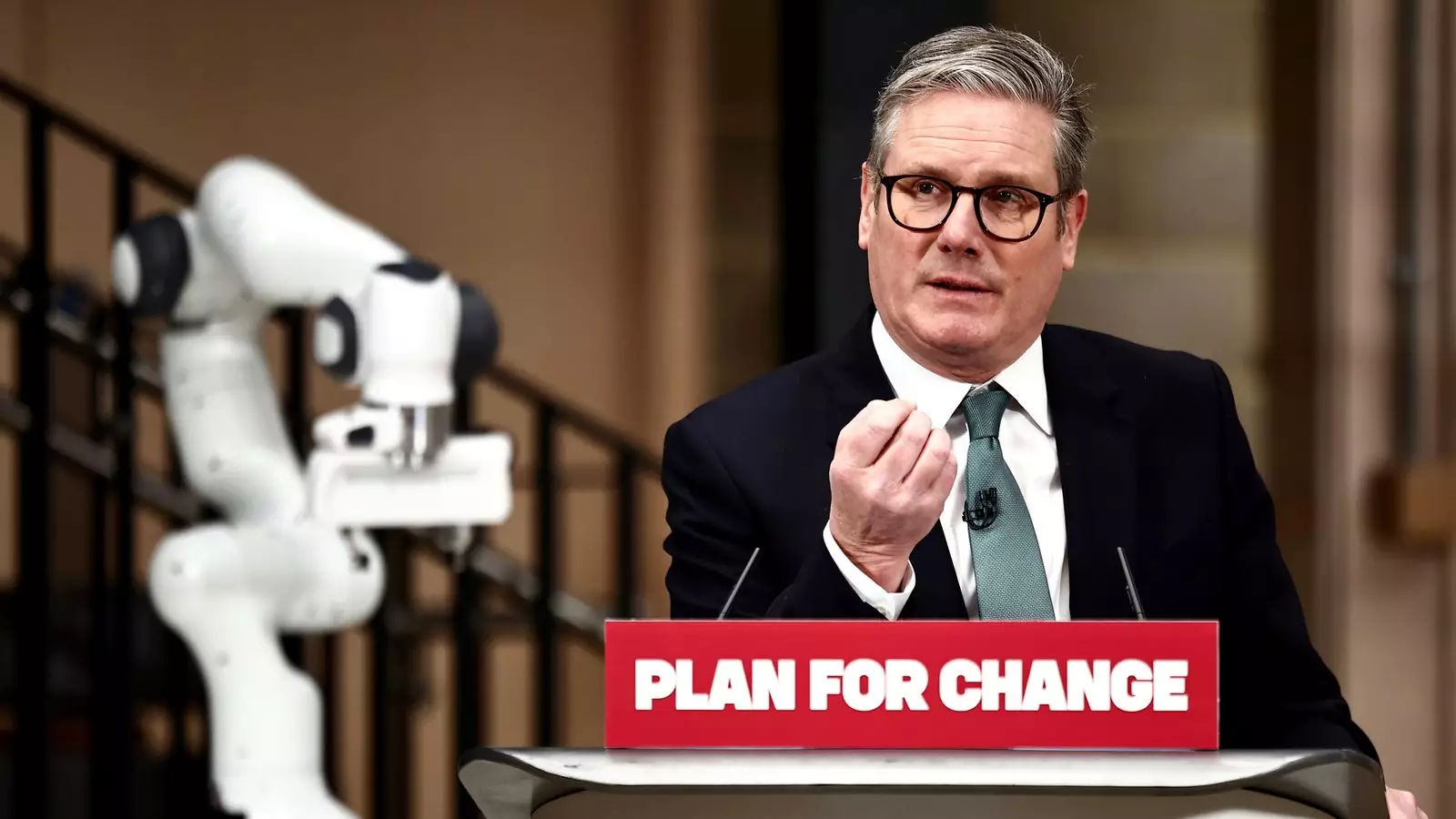In a turbulent economic landscape, Sir Keir Starmer, the leader of the Labour Party, has underscored his government’s commitment to adopting stringent measures to manage public finances. Amidst rising concerns about market stability, Starmer has articulated a clear message: positioning economic growth as the central priority of the government while promising ruthlessness in the cutting of expenditures. This dual approach reflects the broader struggles confronting the UK economy, which has become a focal point of political discourse as it grapples with historical levels of borrowing costs, dwindling currency value, and an uncertain future.
Recent financial indicators signal a troubling trend for the UK economy. Both the 30-year and 10-year government borrowing costs have risen sharply, with the 30-year gilt yield achieving a level of 5.47%, a peak not observed since the late 1990s. Such increases in borrowing costs have a cascading effect, elevating the government’s expense obligations and limiting its fiscal maneuverability. The ripple effects manifest through a depreciating pound, which has dipped to its lowest levels against the dollar, a situation that is alarming for investors and households alike.
The economic forecast has worsened to such an extent that experts are warning of impending increases in mortgage rates. Lenders may react to the volatile market conditions by adjusting rates upward, thereby exacerbating financial pressures on households already struggling with the aftermath of the COVID-19 pandemic and rising costs of living. This presents a grave dilemma for the government, making it necessary to reassess its fiscal strategies.
In response to the evolving economic challenges, Prime Minister Starmer has indicated that a rigorous spending review will take place, mandating government departments to achieve efficiency savings that account for 5% of their budgets. This proactive step is part of a larger strategy to maintain fiscal discipline. Starmer’s insistence on “ruthlessness” signals a fundamental shift in how the government views its fiscal responsibilities, aiming to prioritize growth while tightening financial belts.
Sir Keir’s critiques of the previous Conservative administration resonate loudly within the context of economic recovery. He has openly acknowledged the daunting legacy left behind, describing the economic landscape as “a real mess.” However, he couples this acknowledgment with a commitment to adhere to set fiscal rules, underscoring the government’s intention to restore economic stability. The emphasis on these rules, according to Starmer, is not only central to promoting fiscal responsibility but also essential for rebuilding public trust in economic governance.
An area of speculation has emerged regarding the future of Rachel Reeves, the Chancellor of the Exchequer. While Starmer has praised her performance, notably saying that she is doing a “fantastic job,” he has refrained from confirming her position leading up to the 2029 election. Such ambiguity may create ripples in party confidence, with political adversaries seizing upon the opportunity to question the leadership’s stability.
Kemi Badenoch, the leader of the Conservative Party, has capitalized on Starmer’s evasiveness concerning Reeves’ future. She criticized the Labour leadership for driving the economy into chaos, suggesting that the absence of a clear commitment from Starmer reflects broader uncertainty within the party. Such political dynamics may complicate the government’s strategy as it seeks to instill confidence in both the market and the public.
As the UK navigates these complex economic realities, it will be crucial for the government to articulate a coherent and decisive path forward. The conundrum of stimulating economic growth while implementing stringent spending cuts is not a simple task. It requires a delicate balance, one that is fraught with potential backlash from a public already fatigued by economic strain.
In this challenging environment, maintaining transparency and fostering public confidence will be paramount. The government must communicate its strategies clearly, ensuring that citizens understand the rationale behind painful decisions. Only through a concerted effort to stabilize the economy and make hard choices can the UK hope to emerge from this turbulent period with renewed vigor and resilience. Ultimately, the dual focus on fiscal prudence and economic growth might just be the remedy needed to turn the tide in favor of recovery.

Leave a Reply